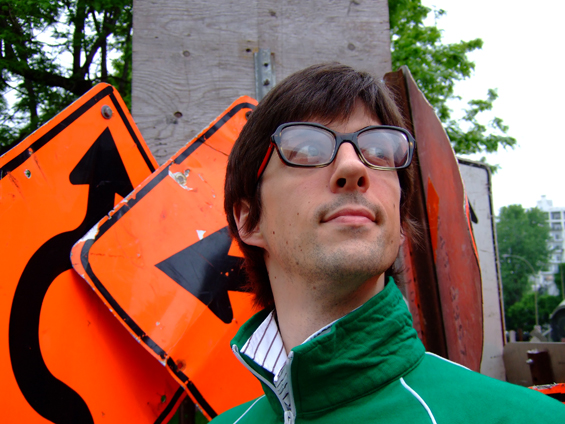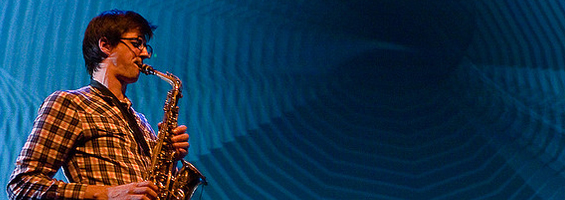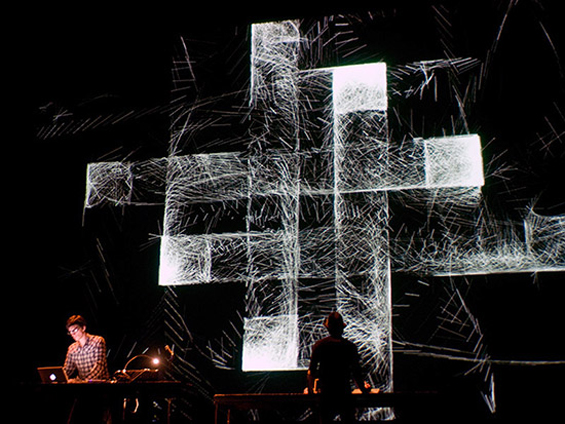Articles
Morgan Packard
Dark Party
Albums
Aardvarck
Vieo Abiungo
Celer
Concern
Enrico Coniglio
Copy
Corrugated Tunnel
Dalot
Darkstar
Gareth Dickson
Directorsound
Dryft
Eskmo
Lugano Fell
Benjamin Finger
Fond of Tigers
Gel-Sol
Giardini di Mirò
Gibson & Rose
Gareth Hardwick
Haruki
Marc Houle
I'm Not A Gun
Rafael Anton Irisarri
Library Tapes
Markus Mehr
Minamo and English
Yann Novak
okamotonoriaki
M. Ostermeier
Morgan Packard
Petrolio
Benoit Pioulard
Hein Schoer
Seaworthy and Rösner
Sketches For Albinos
Slow Dancing Society
Solo Andata
System
Antonio Trinchera
Walkner.Moestl
Zazie V. E. Anderen Stern
Compilations / Mixes
Bacterium
Lost Tribe Sound: One
Ninja Tune XX
EPs
Aufgang
Bogdan
Ibex
Jacksonville
Komet
Minus
Morning Factory
Novak + Manning
rANdOMoiDz / NoseTek
Sozonov
SQware
:take

TEN QUESTIONS WITH MORGAN PACKARD
Morgan Packard is no stranger to textura's pages. We reviewed his impressive debut solo album Airships Fill the Sky when it was issued by New York label Anticipate midway through 2007, and Packard himself was kind enough to participate in a “Backtracking with Morgan Packard's Airships Fill The Sky” feature not long after. For a debut outing, the album struck us as especially assured, not to mention a deft fusion of techno, electronica, dub, and even jazz, even if the music's cumulative effect was finally genre-defying. Though he brings to his work's creation the analytical intelligence of someone well-versed in software design and programming languages, the music that results sounds anything but clinical and overly determined. Instead, Packard's is a highly personalized music that's clearly authored not by a machine but by a living, breathing human being. If his profile has seemed a little low lately, that'll certainly change with the October release of his splendid sophomore album, Moment Again, Elsewhere. We recently had a chance to talk with the Brooklyn-based producer about his latest work and the many other projects (personal and otherwise) looming on the horizon.
1. There's been a significant gap between the two full-lengths (we're told, in fact, that the new album was scheduled to be released a year ago but was held up for a number of reasons), and a great deal has occurred in your own life with respect to personal experiences and development. What specifically caused the release date to be pushed ahead?
The album was delayed about six months due to my being really picky about the mastering. In the end, I decided that since I was going to be in Berlin, I might as well find someone there to do the mastering. I wound up taking it to Rashad Becker, who was very highly recommended from a few different
people, and who's very busy. So I had to wait a while until he had time to work with me. The album was mastered in December and the rest of the delay simply comes down to issues relating to manufacturing and finding a slot in the distributor's release schedule (Kompakt).
2. To what degree have your artistic sensibility and abilities changed in the time separating the albums?
Regarding how my sensibilities have changed, it's much clearer to me now what I am and am not interested in. Perhaps my mind is becoming more closed, or perhaps I'm becoming more focused. I think I've found the bone which I'll be chewing on for quite a few years. Airships Fill the Sky was the very beginning of me finding that. Moment Again Elsewhere feels like I've found it.
3. The new album strikes me as obviously different from the first in a number of ways. What's your own take on how the new recording differs from the first?
I like to think it's a bit more focused than Airships Fill the Sky. Throughout the process of creating it, I felt very confident that I “owned” my sound. I had much less concern about whether what I was recording was “me” or not. Going into it, I had a set of technical and conceptual tools which I'd been working with for a while, and which I felt very comfortable with. So there's maybe not as much striving going on, maybe more simply enjoying where I'm at. The new one is subtler, more understated, I think, which may work for or against it. It also feels a little less “shiny” to me. Partly that's because I used far fewer chord/pad sounds, relying instead mostly on my own piano recordings, and partly it's because of a more subtle approach to mastering.
4. I hear an occasional influence surface when I'm listening to the album. Without revealing my own thoughts about what those influences might be, I'm wondering what artists or traditions you believe influenced the album's material.
Gosh. I don't even know where to start. I mean, music has been influencing me since I was born. I went through a serious jazz phase, then a drum'n'bass phase, then a classical music phase, and now I'm in sort of a techno phase. I try to keep my influences as far away from the surface of my music as possible. I really want it to be dressed in its own clothes. But the skeleton is entirely based on those influences.

5. Why did you decide to use your own software, Ripple, than an industry standard such as Ableton in producing the album? Without getting overly technical, what advantages (aside from familiarity, obviously) did Ripple afford you in the production of the album's material?
People aren't nearly as aware as they should be how the tools they use shape their creations. You can theoretically make anything you want via Ableton Live, but the reality is it steers you toward a certain sound, it's steering our music in general toward a certain sound. The exciting thing about a computer is the removal of external limitations, the wide-openness, the ability to create your own universe. If I'm going to give up that feeling, I think I'd rather just be playing traditional instruments, because those are the really amazing, beautiful tools, which have been under continuous development for millennia.
I think another thing is I simply like the feeling of home-made. I grew up in a family where my parents made lots and lots of their own stuff. Home-made bread, home-made toys, home-made bikes, home-made magical creatures even (thank you, Rhyme Elves). When I got older, the feeling stuck with me that it's nice to be surrounded by home-made things. So maybe the main advantage is that Ripple is just cozier somehow. It's the house I built myself.
6. Piano, accordion, and saxophone were obvious acoustic sound sources for the album. What other sound materials (such as field recordings, for example) found their way into the album?
Honestly, I'm not that much of a sound recording nerd. Some people are really into walking around with a recorder and capturing lots of stuff. I'm more interested in creation than compilation, and find I don't really like sorting through, well, anything really. I work with a pretty small collection of samples. I like the piano and the instruments because they've got character, and I can control them. I like crackly, insect-like sounds. There's a recording I made years ago of ice cracking, which I reuse again and again in different contexts. There's another of steam hissing and crackling out from between the bottom of a pot and the top of my parents' wood stove in New Hampshire, where I made a lot of Moment Ago, Elsewhere . Some of the piano recordings are made with aluminum foil on the strings. And there're several hours of me banging on my wife's parents' piano that went onto the album.
7. You don't play live all that often and to my knowledge you've never toured in the conventional manner either (i.e., one concert per day in a different town). How satisfying is the live experience like for you in terms of being able to match the sound world captured on record, and how comfortable is the experience for you?
I love performing when it goes well. And the more I perform, the better it goes. It's thrilling to see the music actually work on a crowd, and to become better at “playing” the crowd. This fall in Europe, I performed more than I have had before. And by the last of my string of gigs, I finally felt like I had something I could be proud of, that I didn't need to apologize for at all.
In the future, I'll probably gear my recordings more to represent what and how I want to perform, rather than vice versa. I haven't found it very satisfying or interesting to try to build a performance around a bunch of tracks I laid down in the studio. I'm much more excited by the idea of a general framework or performance system which I can improvise inside. So the definitive “composition” would actually be in the software, or system that I create, and the documentation would just be recordings that I create using that system.

8. I'm guessing that the Mutek appearance was a critical moment for you; what impact did that experience have on you in terms of profile, artistic credibility, confidence level, etc.?
Getting a chance to perform in the Mutek AVisions series, at the time, was a very big deal to me. That series of AV concerts had been a beacon to me for a number of years. I suppose it made me feel a little more on the “inside” of something, but those feelings are maybe a little silly. The artistic world I'm operating in is really pretty small, and anyone who sticks around it for a number of years inevitably begins to feel like an insider. Well, I hope that's how everybody feels anyway!
I'm proud of that performance because we—me and my visualist partner Joshue Ott— went into it having designed a complete performance. It was a stretch for us, and we felt like the stakes were high. I'd like for every performance of mine to have that kind of stretching in it. I'm not pursuing performing right now because I don't see the potential for that kind of stretch. I don't have the time to put in to creating something that's not only good, competent, but that's really special.
9. You've also developed an application called Thicket. What's that all about?
Thicket is a collaborative project between me and Ott. It's an interactive audiovisual composition for the iPhone/iPad. Thicket is a natural extension to the techniques that both Josh and I use when performing, put in the hands of whoever's lucky enough to own one of those gadgets and willing to shell out a couple bucks (actually, 99 cents right now). Josh and I are both really interested in this platform and expect to do a lot more work in it. Our work is as much about designing processes as it is about the creation of finished products, and the idea of presenting those processes as works of art in their own right is very appealing to me.
10. So what else is happening in the Morgan Packard universe?
The biggest artistic plans I have for the next six months or so involve continued iOS (iPhone, iPad) app development with Joshue. It's a wide-open world, and I'm very curious to see whether my musical sensibilities can be translated into something special and widely appealing on that platform. I'm very much looking forward to the next period of intense composition and hopefully some for-real touring like you mentioned before! But it's going to have to wait a little while.
I do have some smaller musical projects which have been simmering along. I've done a few remixes of tunes by Robert Crouch from LA that I'm pretty happy about. I've been giving David Last some sounds which he's been turning into songs. Yair Etziony just got in touch with me about a project he's starting where he gets source sounds from a bunch of people and turns them in to real songs. And this fall I may or may not be releasing some techno tracks under an undisclosed name on an undisclosed label.

MORGAN PACKARD
ANTICIPATE RECORDINGS
October 2010
![]()